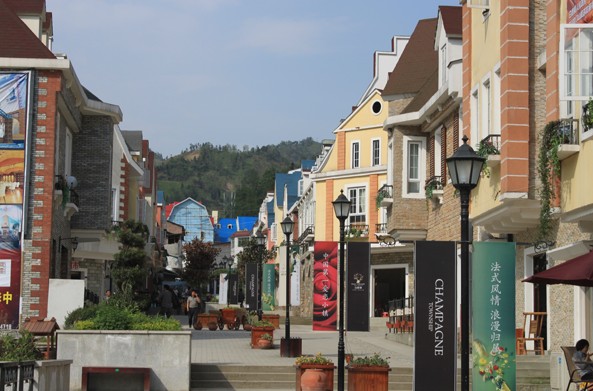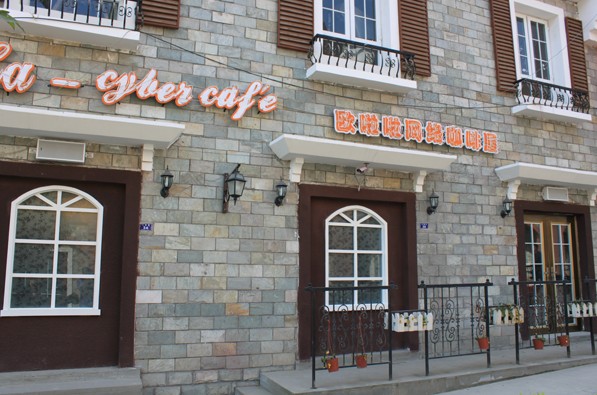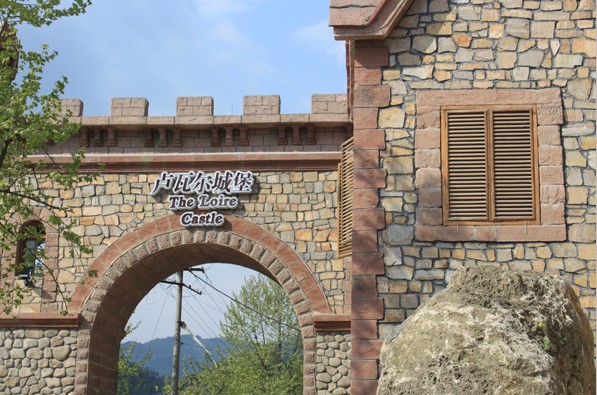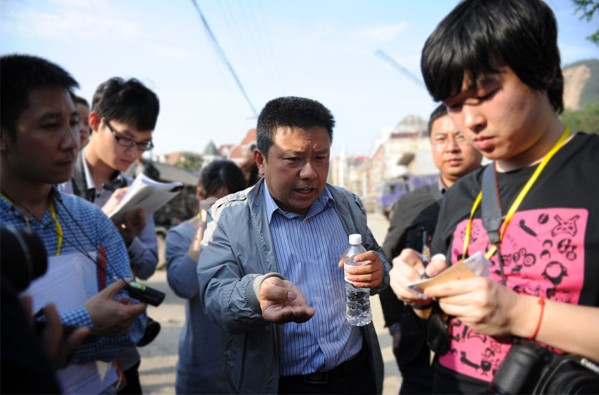Chinese quake town aims to be tourism city
Updated: 2011-04-24 17:09
By Yan Weijue(chinadaily.com.cn)
|
|||||||||||
Stroll along a fancy lane, stop by a bistro, pour yourself a glass of Champagne and bathe in the sunshine. This is how you will soon spend a day if you visit Bailu, a town severely damaged by the 8.0 earthquake that struck Sichuan province on May 12, 2008.
|
 An upmarket street in Bailu, Pengzhou city, Southwest China's Sichuan province, April 23, 2011. [Photo by Yan Weijue/chinadaily.com.cn] |
Yes, this once bustling town has risen from the ashes, and, clearly not satisfied with a conservative restoration project aimed at returning the city to how it was, it wants more.
"We want to take advantage of this opportunity to make tourism our pillar industry," said Gao Tiancheng, Party chief of Bailu, Saturday when answering questions about the town's blueprint for rejuvenation.
The European style of the newly built villas in Bailu has its historical origins. It is said that a missionary from France came to the town in 1865, and spent 11 years on the construction of a Catholic church (Shangshuyuan Church) with the help of thousands of laborers. Amorous couples flocked to the romantic spot for wedding photos; that is, until the quake occurred, when celebration turned to tragedy.
Having considered the financial support available to the town, its commercial prospects and what its legacy should be, the local government decided to make the town into a tourist resort that, uniquely, integrates Chinese and western fashions.
Before the quake, Bailu's major industry, if it ever had one, was commodity sales between villagers.
But now, an exciting yet traditional tourist district is being formed, with bars, hotels, cafes, florists, wedding photo studios, and restaurants that are all scheduled to be completed by June 2011, according to Gao.
|
 An Internet café is seen in Bailu, Pengzhou city, Southwest China's Sichuan province, April 23, 2011. [Photo by Yan Weijue/chinadaily.com.cn] |
"We have signed deals with three wedding photo studios," he said. "Only when we finish the economic transformations can we claim the entire reconstruction work of Bailu has come to an end."
However, Gao acknowledges there were setbacks during the process. In particular, there was opposition from some natives who refused to rent their houses to commercial tenants at low prices.
Regarding rent levels, the government has created four phases. In the first year, rent is free. In the next two years, the rent should be between 5 yuan ($0.77) and 6 yuan per square meter. From the fourth year to the sixth year, the number can be increased but can not be as much as double. Then starting from the seventh year, the rent can be set according to the landlord's wishes. In addition, water, power and gas bills will be paid by the government, who hopes to balance the interests of both sides through the scheme.
"They (the villagers) were complaining about the two-bit rent," said Gao. "Then we tried to persuade them into making a concession. Because if they only focus on short-term returns, there will definitely be no future for Bailu's tourism project."
|
 A hotel under construction is seen in Bailu, Pengzhou city, Southwest China's Sichuan province, April 23, 2011. [Photo by Yan Weijue/chinadaily.com.cn] |
|
 Gao Tiancheng (C), Party chief of Bailu, answers questions from journalists in Bailu, April 23, 2011. [Photo by Yan Weijue/chinadaily.com.cn] |